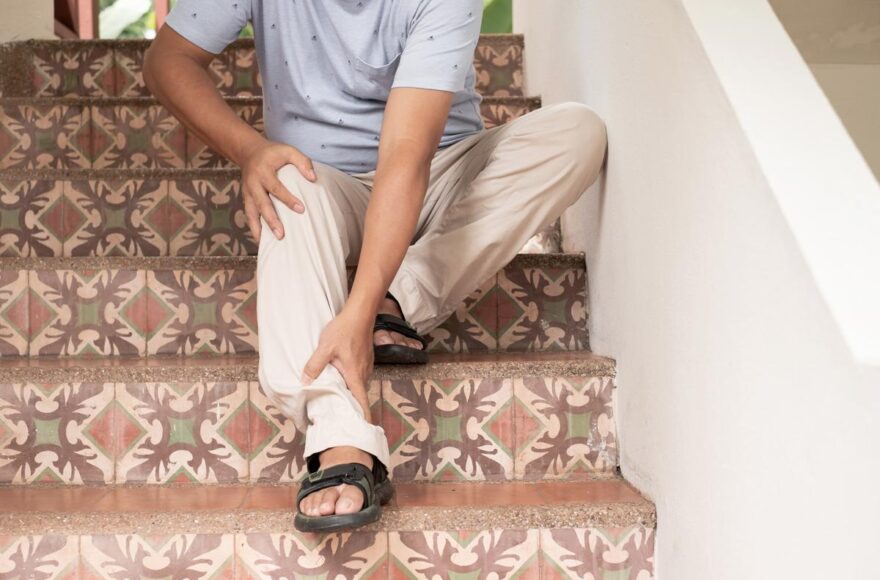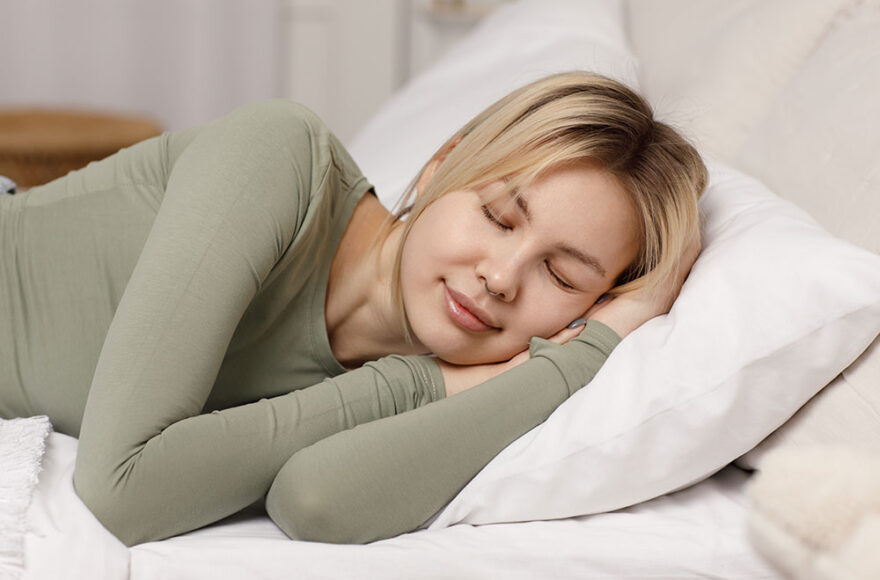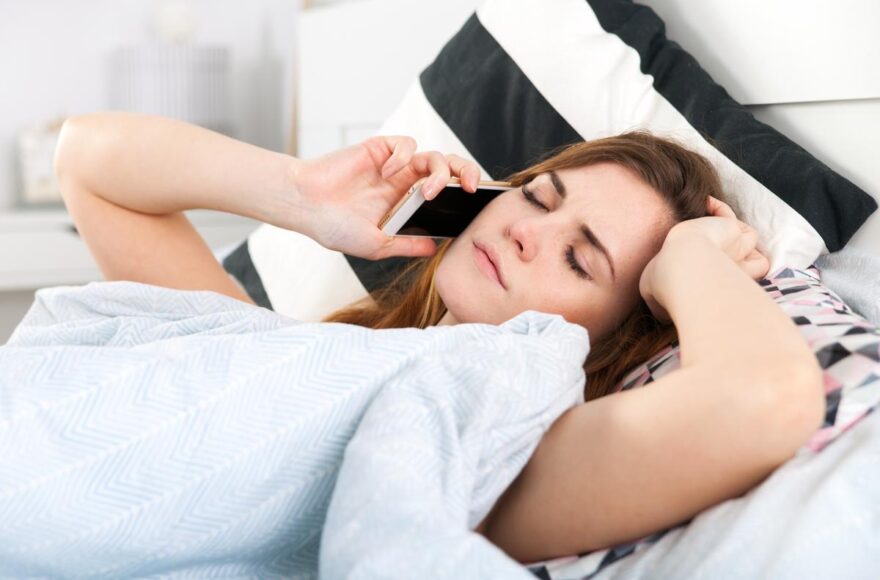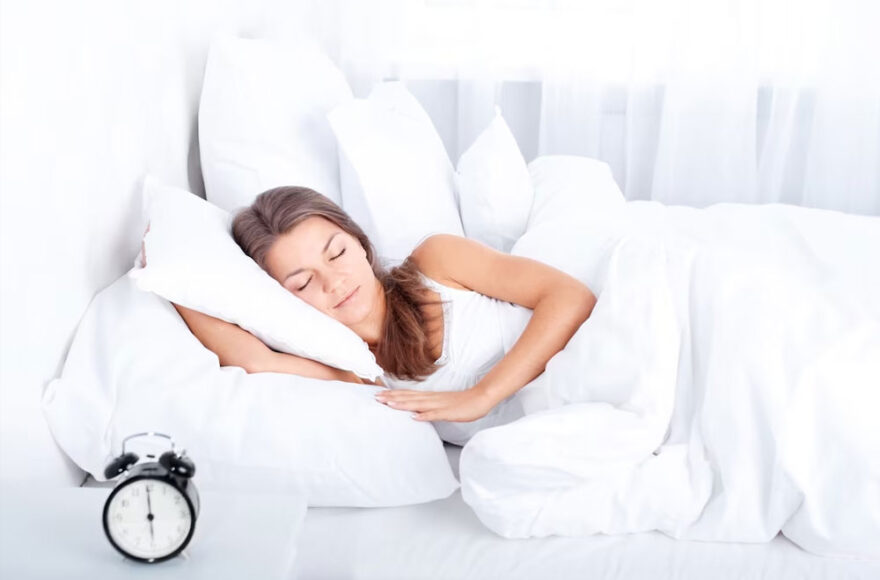Detail Information About Delayed Sleep Phase Syndrome
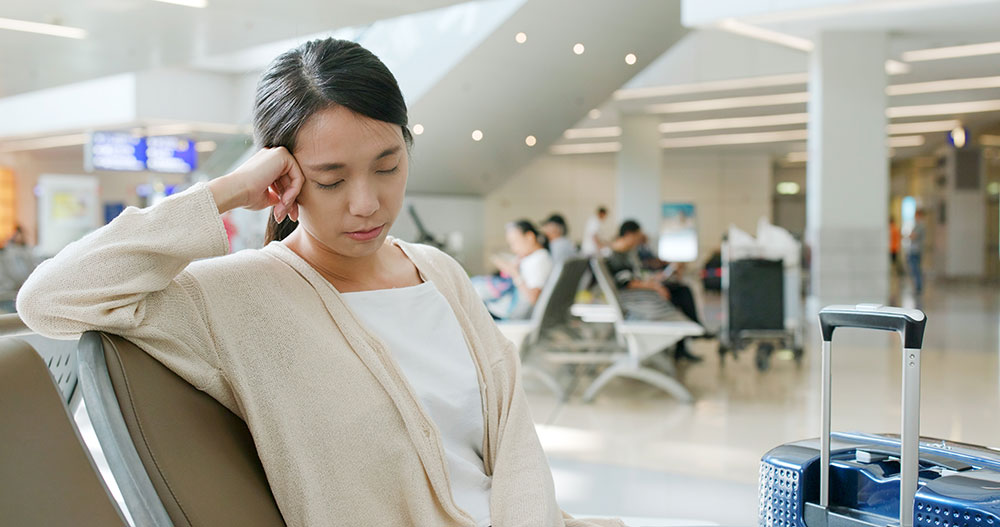
Table of Contents
Overview
Delayed Sleep Phase Syndrome (DSPS) is a disorder of the internal body clock (circadian rhythm). It regulates the 24-hour sleep-wake cycle and other vital bodily functions like hunger, digestion, temperature, and hormone release. DSPS also known as delayed sleep-wake phase disorder or delayed sleep phase disorder. It can be caused by exposure to late-night light from electronics or jet lag from traveling across time zones, which can disrupt the circadian rhythm.
People with DSPS struggle to fall asleep at a socially acceptable bedtime and are delayed by at least two hours, even when they are tired. This can result in waking up later than desired, making it difficult to attend work or school. DSPS is most common in teenagers and young adults, with research suggesting that 15% of adolescents have it more often than adults. People with DSPS are often referred to as “night owls,” but this is different from DSPS as night owls choose to stay up late, while those with DSPS are awake late due to a delayed body clock.
Signs and Symptoms of DSPS
The most common symptom of DSPS is you cannot fall asleep at a socially acceptable bedtime. And this late bedtime causes difficulty waking up early or at your desired time. DSPS can cause a lack of a full night of sleep which can trigger many symptoms, such as
1. Difficulty falling asleep
DSPS can cause difficulty in falling asleep at a social bedtime. This can interfere with your internal clock, keep you awake and alter and delay your sleep. It can keep you awake till midnight and unable to sleep until several hours after midnight, between 2 am and 6 am. This can become worse if you stay up to do homework or socialize.
2. Difficulty waking up
Since you sleep late, you have difficulty waking up at a normal time. DSPS can disturb your internal clock, so your internal clock is not started early to tell your body to wake up. You can get sleep in the late morning or afternoon.
3. Excessive daytime sleepiness
Getting not enough sleep or lack of sleep can cause daytime drowsiness. DSPS can cause
daytime drowsiness because it makes you fall asleep late. Daytime drowsiness can make you less focused. You are unable to perform your daily routine tasks.
And you might find it challenging to focus and pay attention at work or school. Even if you try to fall asleep early, DSPS may prevent you from entering into a deep sleep state. And getting not enough deep sleep can make you feel exhausted the next day.
4. No other sleep issues
DSPS is not associated with other sleep problems like sleep apnea. Unless it interferes with your everyday daily life. You may get enough quality sleep, but it is just delayed. Unlike insomnia, you don’t have no problems staying asleep. But the problem is whenyou can sleep and wake up.
5. Depression and behavior problems
If you don’t have a regular sleep schedule, waking up and falling asleep is not constant every day. It can cause depression due to lack of sleep and anxiety about being awake. Also, you have daytime sleepiness the next day, which can interfere with work or school.
Sleeping late at night can make you show up late or miss the day. And if you are there, you are unable to concentrate or focus. It is observed that children and teenagers with DSPS show poor academic performance. Also, DSPS can lead to a dependency or addiction to caffeine, alcohol, or sedatives.
Causes of DSPS
The exact cause of DSPS is still not known, but several factors can cause DSPS, such as
1. Genetics
It is thought that if one of your parents or a closerelative has DSPS, you are more likely to develop this condition. Researches show that 40% of people with DSPS have a family history of this condition.
2. Changes happen after puberty
During adolescence, the internal body clock makes a 24-hour sleep cycle longer than usual. Children require later sleep and wake times during adolescence. They are also willing to be more social and do more chores.
3. Psychological and neurological disorders
DSPS is associated with several psychological and neurological disorders, such as
- Anxiety
- Depression
- Obsessive-compulsive disorder
- Attention deficit hyperactivity disorder
3. Chronic insomnia
Chronic insomnia is one of the major factors in developing DSPS. It is suggested that 10% of people with chronic insomnia are affected by DSPS.
4. Poor sleep hygiene (sleeping habits)
If you have poor sleeping habits, you might develop DSPS. Poor sleep hygiene includes not constant sleep and wake-up time or taking irregular naps, or using a cell phone in bed. These can keep your sleep schedule disturbed, and you are unable to get a good night’s sleep.
Also, you don’t get enough light exposure in the morning, which can worsen DSPS symptoms. Symptoms also increase if you use a cell phone late at night.
DSPS vs. night owl
DSPS is a different condition when compared to a night owl. Because if you are a night owl, you purposely stay up late to do homework or socialize. And the next day, you will wake up later than usual. But when you try to follow a regular sleep schedule, you can easily adjust your sleep and wake-up timings.
While in DSPS, you don’t try to stay up late, but your internal clock delays your sleep, making you alter and awake. You cannot follow a regular sleep schedule, and it is difficult to adjust your body clock. You sleep late at night but wake at normal times.
Diagnosis of DSPS
Diagnosis of DSPS is challenging and is often misdiagnosed. Because most people with DSPS try to follow a regular sleep routine which makes them more tired. They are often misdiagnosed with depression or insomnia because they have difficulty falling asleep.
To avoid misdiagnosis, you must talk to a sleep specialist if you or your child has sleep issues. Also, must see the doctor if you have delayed sleep for at least seven days. A sleep specialist can help you by doing different tests to diagnose DSPS. This includes the following procedures
1. Your medical history
The doctor can ask you about your medical history. If you have any medical condition or other condition that runs in your family.
2. Request a sleep journal
Your doctor asks you to maintain a sleep journal for at least two weeks. In this journal, you have to write the time of the day when you fall asleep and wake up. You can prepare it in advance for your first appointment.
3. Actigraphy
This procedure includes wearing a wrist device that records your sleep and wake times. It can help you tracks your sleep-wake patterns. This test works best when you are on leave from
work or school. Because you don’t have to worry about the wake-up time.
4. Polysomnogram
A polysomnogram is an overnight sleep test that helps to diagnose other sleep disorders. In this test, you have to spend the night sleeping in a sleep lab where your brain waves, oxygen level, breathing, and heart rate are recorded and monitored. This test will help your doctor to see what your body does during sleep.
Treatments of DSPS
The doctor can use more than one method to treat DSPS. The goal is to normalize your sleep schedule by adjusting your internal body clock. It includes mostly lifestyle changes to reduce DSPS symptoms. The treatment of DSPS involves the following methods.
1. Advancing your internal clock
In this step, you have to go to bed about 15 minutes earlier each night. This can make you wake up a bit earlier each day.
2. Chronotherapy (Delaying your internal clock)
In this method, you have to delay your bedtime by 1 to 2.5 hours every six days. Repeat this procedure until you can follow a regular sleep schedule.
3. Bright light therapy
Light is added to your system to reset your internal body clock in this therapy. You have to sit near a light box for 30 minutes after waking up every morning. This light exposure can help you sleep sooner by advancing your internal clock.
4. Melatonin supplements
Melatonin is also called a sleep hormone; it helps your body cue to sleep. Most doctors prescribe melatonin supplements for sleep disorders. But it has severe side effects, so you have to strictly follow the doctor’s advice and dosage.
5. Improving sleep hygiene
Poor sleep hygiene can cause DSPS and many other sleep problems. You can prevent them by practicing good sleep hygiene. It also helps you to reduce DSPS symptoms. Good sleep hygiene includes habits like
- Follow a regular sleep schedule
- Avoiding electronics before bedtime
- Reduce your caffeine intake
- Limit or avoid alcohol
- Quit tobacco
- Avoid doing vigorous exercise just near bedtime
Do DSPS disappear when a teen grows up?
DSPS is very common in teenagers, so most parents think this question. Do DSPS disappears when their teen grow up? The answer is NO. They have to like with DSPS, and it continues in their adulthood. So your teen needs treatment. Ask your doctor for the best treatment for DSPS. But initial treatment will adjust your teen’s internal body clock, which can be better if you continue treatment.
